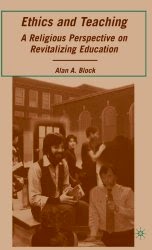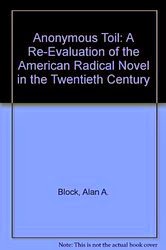 Symphony #1
Symphony #1 was begun in the Spring of 2005 as
brief sketches that I composed and placed on my blog. I had developed
Of Clay and Wattles Made as a forum
where I might be able to think aloud, even publically, about items and issues
that concerned me in the exercises of my daily life. Montaigne says about his
book of essays, “Thus, reader, I am myself the matter of my book; you
would be unreasonable to spend your leisure on so frivolous and vain a
subject.” So is it with my blog. But despite his disclaimer, I am certain
Montaigne hoped that others would read his work: he did, after all, publish his
manuscript! And for me, the
blog was a forum for my random thoughts; I never would know to what extent
anyone read my work, but over the past six years I have developed and
maintained the blog and believe that others occasionally discover my
ruminations as they explore the world-wide web;
Of Clay and Wattles Made continues to inform me.
During
those same years that I wrote Of Clay and
Wattles Made, I published three scholarly books that were well received and
little read. Though they were intended for a wider audience, they were actually
written for a small, select one. Talmud,
Curriculum and the Practical: Joseph Schwab and the Rabbis (2004) was
awarded the Outstanding Book Award by Division B Curriculum Studies Special
Interest Group in 2006 and Ethics and
Teaching (2009) received a glowing review in Choice. Pedagogy, Religion and Practice (2007) remains dearest to my heart as a meditative reflection
on what I did during a sabbatical leave. I learned a great many things. My
royalty checks are steady, small and gratifying.
Over
the years I began to recognize themes in my writing to which I kept returning.
They were the same themes that I think drew me to the works of Bob Dylan, Henry
David Thoreau, Philip Roth . . . and Ludwig van Beethoven. Maynard Solomon
writes of Beethoven’s 3rd Symphony: “A unique characteristic of the Eroica symphony—and of its heroic successors—is
the incorporation into musical form of death, destructiveness, anxiety, and
aggression, as terrors to be transcended within the work of art itself.” Such
were the themes that had long inhabited my consciousness and more recently my
intellectual work. I have lived in troubled and troubling times. I have not
always fared so well, though I have too much for which to give thanks.
Sometimes I thought there was someone there; at other times there was only me.
And if Dylan, Thoreau and Roth provided me insight into myself and my world
through the medium of language in beautifully constructed and arranged forms,
then Beethoven deepened my experience in the world through non-linguistic
means. Solomon says: “Beethoven’s music does not merely express man’s capacity
to endure or even to resist suffering—his sonata cycles continue to
project—on a vastly magnified scale—the essential features of high comedy: happy endings, joyful
reconciliations, victories won and tragedy effaced.” This I believe is what
drew me to Beethoven’s work, even as I think it had drawn me to literature; I thought
I might want to write a symphony.
My
present passion for the music—and particularly the symphonies—of Ludwig van Beethoven (I have learned that van denotes a common man whereas von denotes one from the nobility)
followed a year of daily listening to Bob Dylan’s Modern Times, a work that portrayed a world breaking up and in
despair, and yet a world one out of which joy may be ephemerally wrung. I
return regularly to the novels of Philip Roth and find myself particularly
drawn to The Human Stain, a work at
the core of which lies the tragedy of the human condition. By writing a
symphony, I hoped to express myself in words as might a musician in notes. I
sought in the composition of Symphony #1 to
use the forms of musical structures common to the classical symphony to expose
those themes that have run through a good part of my life and in the work to
offer variations on those themes. I wanted to explore the progress of my life
through the issues that have come now to characterize it.
Symphony #1 consists of four movements, modeled
each after a different musical form: sonata
allegro, marche funebre, scherzo,
and theme and variations, linked by
the emotion with which I address the experience of a life suffered and
celebrated. Though each movement can be read separately, the entire symphony is
thematically linked and stands as an extended (and extensive) whole. I am too
far into my sixties and have lived, as they say, through interesting times. Symphony #1 begins not with birth nor ends
in death, though these subjects run through the work; the symphony nevertheless
presents the experience of a life in which beginnings and endings figure importantly.
This life takes place on the pond’s shores, but there are times when its bottom
is sounded. Sometimes I think there is someone there, and other times it’s only
me.
 Symphony #1 was begun in the Spring of 2005 as
brief sketches that I composed and placed on my blog. I had developed Of Clay and Wattles Made as a forum
where I might be able to think aloud, even publically, about items and issues
that concerned me in the exercises of my daily life. Montaigne says about his
book of essays, “Thus, reader, I am myself the matter of my book; you
would be unreasonable to spend your leisure on so frivolous and vain a
subject.” So is it with my blog. But despite his disclaimer, I am certain
Montaigne hoped that others would read his work: he did, after all, publish his
manuscript! And for me, the
blog was a forum for my random thoughts; I never would know to what extent
anyone read my work, but over the past six years I have developed and
maintained the blog and believe that others occasionally discover my
ruminations as they explore the world-wide web; Of Clay and Wattles Made continues to inform me.
Symphony #1 was begun in the Spring of 2005 as
brief sketches that I composed and placed on my blog. I had developed Of Clay and Wattles Made as a forum
where I might be able to think aloud, even publically, about items and issues
that concerned me in the exercises of my daily life. Montaigne says about his
book of essays, “Thus, reader, I am myself the matter of my book; you
would be unreasonable to spend your leisure on so frivolous and vain a
subject.” So is it with my blog. But despite his disclaimer, I am certain
Montaigne hoped that others would read his work: he did, after all, publish his
manuscript! And for me, the
blog was a forum for my random thoughts; I never would know to what extent
anyone read my work, but over the past six years I have developed and
maintained the blog and believe that others occasionally discover my
ruminations as they explore the world-wide web; Of Clay and Wattles Made continues to inform me. 















